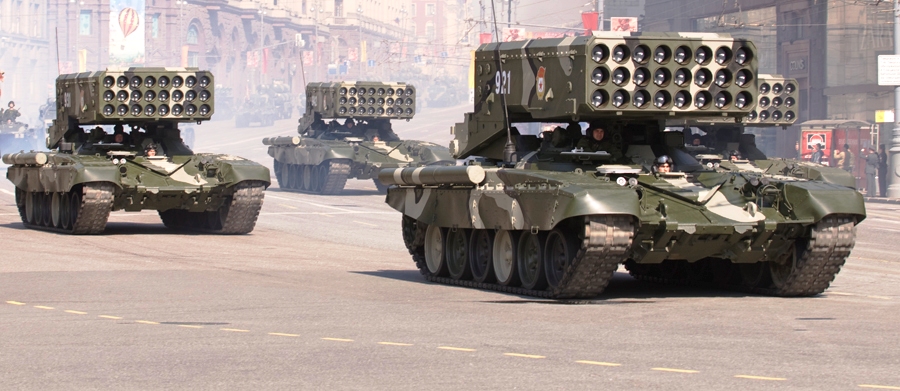Moreover, Russia’s spending has to cover a military space program, strategic nuclear weapons, a blue-water navy, and the looming threat from China in the east. European countries have to worry about little or none of such matters.
Also, Russia’s spending, after years of growth, is falling, whereas European countries’ defense budgets are growing (after years of scrimping).
One conclusion from this would be to say that the threat from Russia is being grotesquely exaggerated. Talk of a “new cold war” – the title of my book in 2008 – is scaremongering. Those behind it are incurable Russophobes, or promoting their own commercial or political interests.
That conclusion would be a mistake. For a start, much European defense spending is highly ineffective. A lot gets wasted on fragmented national procurement schemes. Defense industries are able lobbyists (put politely) or ruthless profiteers (put more bluntly). Too much money goes to pensions and salaries: important, but not part of cutting-edge defense. Russia has problems with waste and inefficiency too, but on this front it scores better.
Geography helps Russia too. The countries we are trying to defend are small (in the case of the Baltic states) and mostly flat. Reinforcing them is difficult, because we have lost the logistical capabilities we had during the Cold War. Politically, Russian public opinion is ready to accept risk and casualties. Western public opinion, scarred by costly and unsuccessful wars in Iraq and Afghanistan, is quasi-pacifist.
Perhaps most importantly, Russia has the edge in next-generation warfare. If you can destroy your adversary’s ability to interpret events and make decisions, you do not need superiority on the battlefield. His troops won’t fight. Yours will. That was the lesson of Ukraine in 2014, where numerically stronger forces lacked the plans, leadership, and logistics to defend Crimea from a smaller contingent of well-led, well-organized, and mobile Russian attackers. Russia has shown its ability to use information operations as part of wider influence campaigns to hit home in the heart of the “old West.”
There are two lessons for the European countries here, especially in an era when U.S. support is looking increasingly uncertain. One is the need for efficiency in defense spending: avoid duplication, increase pooling and sharing, and focus on the weapons you actually need, rather than the ones that your defense contractors want to sell.
Secondly, think about the way Russia (and in the future, China) is trying to win victories in conflicts that fall short of war. Germany’s biggest security vulnerability, for example, is its willingness to build NordStream 2, a natural gas pipeline that weakens allies and creates a huge and durable Russian bridgehead in the heart of the German economy. No Russian tanks rolled down Unter den Linden in the heart of Berlin to force the German government to do this: it was a self-inflicted wound, prompted by murky lobbying and short-term greed.
The bottom line here is that Europe can easily afford to defend itself against Russia, even without the U.S. But the process will require intensified cooperation and cohesion at a time when the tide is running strongly towards fragmentation. The question for European politicians in the coming years will be whether they are prepared to trade the illusion of sovereignty for real security.




